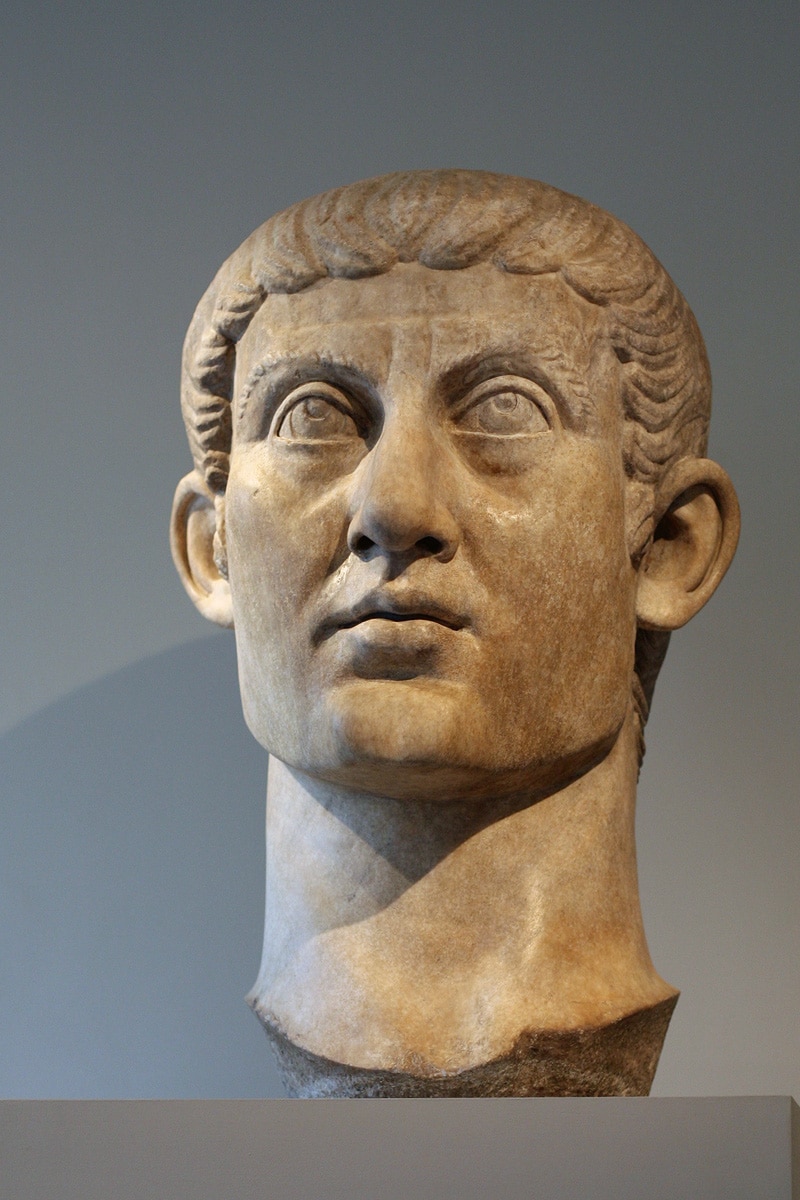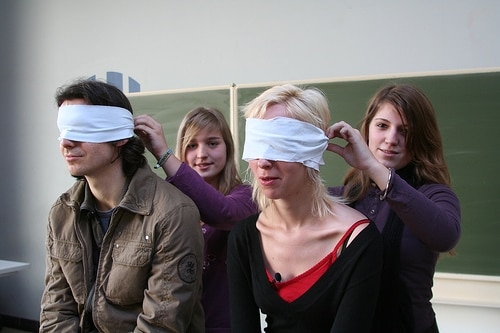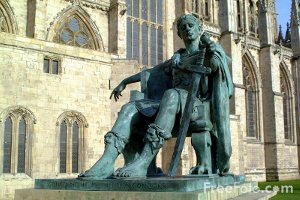 The World Mission Society Church of God (WMSCOG) core beliefs are: A Korean man named Ahn Sahng Hong, who died in 1985, was the second coming of Jesus Christ. During his lifetime, Ahn Sahng Hong fulfilled numerous biblical prophecies. A Korean woman named Zahng Gil Jah, currently living in South Korea, is “god the mother” […]]]>
The World Mission Society Church of God (WMSCOG) core beliefs are: A Korean man named Ahn Sahng Hong, who died in 1985, was the second coming of Jesus Christ. During his lifetime, Ahn Sahng Hong fulfilled numerous biblical prophecies. A Korean woman named Zahng Gil Jah, currently living in South Korea, is “god the mother” […]]]>
The World Mission Society Church of God (WMSCOG) core beliefs are:
- A Korean man named Ahn Sahng Hong, who died in 1985, was the second coming of Jesus Christ. During his lifetime, Ahn Sahng Hong fulfilled numerous biblical prophecies.
- A Korean woman named Zahng Gil Jah, currently living in South Korea, is “god the mother” and spiritual wife of Ahn Sahng Hong.
- Ahn Sahng Hong designated Zahng Gil Jah as “god the mother” during the Passover observed in 1984.
- The WMSCOG is the one “true” church.
- All other churches are “spiritual Babylons” and are filled with demons.
- All other churches are heretical, blasphemers and liars.
- The WMSCOG’s Mission is to prove all other religions false.
- Salvation can ONLY be obtained through activities (works) including but not limited to, baptism into the WMSCOG, observance of all of their appointed holidays, tithing, recruiting new members and strict attendance.
- Saturday is the correct day to worship God and any church that worships on a Sunday practices paganism.
- Tuesday worship, also known as third day service, is also required.
- Men and women sit separately during church services.
- Women are required to wear veils during church services.
- The Passover is the seal of God and protects members from natural disasters.
- The WMSCOG is the only church that observes the Passover and other old testament feasts “correctly.”
- All humans are angels that sinned in heaven and are born on earth in order to earn their way back into heaven.
- Family and love are temptations from Satan.
- Crosses are a form of idolatry (even though this was not one of Ahn Sahng Hong’s teachings).
- The Pope is the Anti-Christ
- People who criticize the WMSCOG, especially family and friends, are “slanderers” who are being controlled by Satan.
- Anyone that tries to get a member to doubt or leave the WMSCOG is being used by Satan to take the member away from God.
- Members may only date with approval by the WMSCOG leadership.
- Some marriages are arranged by the leadership.
- Divorce is acceptable and may even be encouraged by the leadership if a member is divorcing a non-WMSCOG member.
- Members should avoid the Internet because it is the tree of knowledge of good and evil.
- Members can not socialize outside of the church because that is where Satan swells and will cause members to fight with each other.
- Along with keeping every Sabbath and 7 feasts, members are required to bear 10 talents (recruit 10 members) in order to enter heaven. A talent is a person they bring to the church who gets baptized, becomes an evangelist by preaching 8 times per month, tithes consistently for at least 3 months and bears a talent (recruits a member) of their own.
- Does not allow preaching to the homeless or disabled.
- Does not allow members of the LGBTQ+ community to be baptized unless they denounce their lifestyle and agree to remain single for the rest of their lives.
- The tithe, 10% of gross income from all sources including tax refunds, is the minimum rent that must be paid to God. If a member does not tithe, they are robbing God and belong to the devil.
- Good will offerings are also required in addition to the tithe offering.
- Parents must tithe on behalf of their children.
- Members must pray three times per day, at times designated by the WMSCOG.
- Members must pray at 5am every day as God the Mother in Korea allegedly does.
- Attendance is tracked for each preaching meeting and sent to the General Assembly in Korea.
- Members who have no children must attend at least 8 preaching meetings per month to be considered an evangelist.
- Members who have children must attend at least 4 preaching meetings a month to be considered an evangelist.
- A member needs to be an evangelist before they can meet Zahng Gil Jah.
- Mondays are allocated for worldly responsibilities, such as laundry.
- The church buildings are to be cleaned on Fridays in preparation for Saturday services.
 According to the World Mission Society Church of God, the Roman Emperor Constantine abolished the Sabbath in 321 A.D at the First Council of Nicea. On the official USA site, the WMSCOG quotes Constantine as stating, “All judges, city-people and craftsmen shall rest on the venerable day of the Sun.” However, given the WMSCOG’s history […]]]>
According to the World Mission Society Church of God, the Roman Emperor Constantine abolished the Sabbath in 321 A.D at the First Council of Nicea. On the official USA site, the WMSCOG quotes Constantine as stating, “All judges, city-people and craftsmen shall rest on the venerable day of the Sun.” However, given the WMSCOG’s history […]]]>
According to the World Mission Society Church of God, the Roman Emperor Constantine abolished the Sabbath in 321 A.D at the First Council of Nicea. On the official USA site, the WMSCOG quotes Constantine as stating, “All judges, city-people and craftsmen shall rest on the venerable day of the Sun.” However, given the WMSCOG’s history of poorly interpreting Scripture, and their distortion of other author’s works as proven here, we feel their interpretation of history probably deserves a little closer examination as well.
Sunday Observance In Scripture
Immediately after the resurrection of Jesus, there was some confusion among the Jewish converts about certain Jewish practices such as circumcision, which particular day of worship to observe, and whether or not to observe the Jewish feasts. We see these issues addressed by the Apostle Paul in many places (e.g. Col 2:14-17, Gal 5:6). While Paul goes to the Jewish synagogue on the Sabbath in order to evangelize to the Jews (Acts 17:2, 18:4) but gathers with Christian followers on Sunday (Acts 20:7). [Click here to see an in-depth explanation of Acts 20:7]
First We Must Study Church History
And how does one study Church history? By reading historical documents. The writings of Christians throughout the ages have left the academic world with a veritable wealth of knowledge and insight concerning the beliefs and practices of Christians since the time of Jesus Christ. These are easily accessible to anyone with an Internet connection, and studied heavily in academia and seminaries throughout the world. You can read the writings of the first Christians online for free here, at your local library, or pick up any one of a number of good compendiums available online, or from your favorite bookstore. Now, if you were to click over and read some of these writings, just what would they say?
Sunday Observance In The Early Church
The historical record stands in stark contrast to the claims of the WMSCOG. All of the writings of the first Christians unequivocally claim that Christians were observing Sunday as their day of worship, some 240 years before the Nicean Counsel when the WMSCOG claims that Sunday worship was imposed upon a “Saturday-observant” Christian world. Unfortunately for them, their claim does not hold up with history. You can visit your local library, or purchase any compendium of early Christian writings (such as this one) and read what the first Christians had to say. For instance:
Ignatius (appointed by Peter as Bishop of Antioch) in the IX chapter of his letter to the Magnesians in 110 A.D. writes:
“If they who were concerned in old things, arrived at a newness of hope, no longer observing the Sabbath, but living according to the Lord’s day, by which our life sprung from him and by his death (whom certain persons deny)…we have been made his disciples, let us live according to Christianity.”
Barnabas (named in Acts 14:14, who was an apostle and the companion of Paul) writes in the XV chapter of his Epistle in 120 A.D.
“Wherefore, also, we keep the eighth day with joyfulness, the day, also, on which Jesus rose again from the dead.”
Justin Martyr (one of the first Christian apologists) wrote in the LXVII chapter of his first apology in 140 A.D.
“Sunday is the day on which we all hold our common assembly, because it is the first day on which God, having wrought a change in the darkness, made the world; and Jesus Christ our savior , on the same day rose from the dead.”
The Didache (considered by all major scholars to be the most authoritative historical writing on early Christianity outside the Bible) stated in 80-90 A.D.
“And on the day of our Lord’s resurrection, which is the Lord’s day meet more diligently.”
Don’t just take our word for it though. See for yourself, by googling, or visiting your local library and learn exactly what the first Christians thought about Sunday vs Saturday observance. Note well, how everything written both before and after 325 AD. unequivocally states that Christians observed Sunday. How can the WMSCOG get it so wrong? It’s turning a blind eye to the clear historical record to say the least, and I don’t know any historian who wouldn’t laugh their version of history out of the room.
Do Christians Worship The Sun On Sunday?
Not content to leave it at misrepresenting early Christian practices, the WMSCOG takes it a step further, claiming on their official USA site, that during the fourth century:
…the faith of the Christians weakened, and they began to accept the customs of the sun-god worshipers. During this turn-over, they even began to rest and to worship on the first day of the week [Sunday].
Ouch. Now, that just looks silly after all of the historical research we have done (you did go and read up on early Christian observance of Sunday didn’t you?)
The WMSCOG implies that Christians are worshiping the Sun when they gather to worship on Sunday. Let’s take that argument and apply it to Jews and other Sabbatarians. Saturday is named after the planet Saturn. Does that mean that Jews and the WMSCOG worship Saturn because they gather to worship on Saturday? People who gather on Sunday are no more worshiping the Sun god that those who gather on Saturday are worshiping the pagan god of Saturn.
Did Constantine Really Abolish The Sabbath?
Constatine, as emperor, only had jurisdiction over civil observance of the day of rest. Constantine did not have authority within the church to designate or change the day of worship. In fact, Constatine helped stop the persecution of Christians by making Sunday a day of rest, so they could not be singled out for discrimination by a mostly-pagan populous.
Eusebius, a Roman Bishop and historian, wrote “The Life of Constantine”. Eusebius wrote regarding Constantine and Sunday worship:
“And since his [Constantine] desire was to teach his whole army zealously to honor the Saviour’s day (which derives its name from light, and from the sun), he freely granted to those among them who were partakers of the divine faith, leisure for attendance on the services of the Church of God, in order that they might be able, without impediment, to perform their religious worship”.
Eusebius makes it clear that Christians were previously unable to worship on Sundays because they were required to work. Previously, Saturday was the only day of rest, or day on which no customary work was to be done. If Constantine would have abolished the Sabbath, as the WMSCOG claims, then he would have had to reinstate Saturday as a day of work. There is no historical evidence, that I can find, to even suggest that Constantine abolished Saturday as a day of rest. Is there any evidence in Jewish history that supports that Constantine abolished the Sabbath and forced the Jews to work or prohibited them to worship on Saturday? No. Did Constantine institute any consequences for Christians that did not worship on Sunday? No. Then it is impossible for Constantine to have “abolished” the Sabbath and therefore, the WMSCOG’s claims remain unfounded. It is revisionist history to say otherwise.
Is Constantine Satan?
In the WMSCOG’s study on the book of Daniel, or Daniel’s Prophecy, they claim that Constantine is Satan because he allegedly changed God’s laws (Daniel 7:25). The WMSCOG also claims that the positive changes that Constantine made for Christians during his reign were an attempt by Constantine (or Satan according to the official WMSCOG site) to trick Christians into turning against God.
When Satan [Constantine] changed his methods of persecution, however, and praised the Church, he tempted the Christians to combine their faiths together. They were given back the properties that had been taken from them, ministers were exempted from military service, and the Church was even given the right to emancipate slaves. Through all of these outwardly positive changes to the Church, the Christians unwittingly fell into Satan’s schemes and knelt down before him. They turned their backs away from God…
It is important to mention that immediately prior to Constantine’s rule, the Christians suffered what is called The Great Persecution during which 20,000 Christians died under the Roman Emperor Diocletian. Why doesn’t the WMSCOG consider Diocletian to be Satan? During the Diocletian rule, Christians were forced to burn incense and offer sacrifices to pagan gods and were arrested, tortured, and sometimes killed if they refused. Constantine made the practice of offering sacrifices illegal and expelled those officers in his court that made sacrifices to pagan gods. Why would Constantine do this if his goal was to turn Christians away from God? It was not until Constantine legalized Christianity that the persecution ceased.
In the above quote, the WMSCOG claims that Constantine wanted Christians to bow down before him. But Eusebius, in his writings about Constantine, explains that Constantine was displeased with people who praised him excessively.
“And now that all these ceremonies were completed, and the divine qualities of the emperor’s character continued to be the theme of universal praise, one of God’s ministers presumed so far as in his own presence to pronounce him blessed, as having been counted worthy to hold absolute and universal empire in this life, and as being destined to share the empire of the Son of God in the world to come. These words, however, Constantine heard with indignation, and forbade the speaker to hold such language, exhorting him rather to pray earnestly on his behalf, that whether in this life or in that which is to come, he might be found worthy to be a servant of God“.
Did Constantine Abolish Other Feasts?
In his writings about Constantine, Eusebius tells us that Constantine died at noon on the day of the Pentacost.
“All these events occurred during a most important festival, I mean the august and holy solemnity of Pentecost, which is distinguished by a period of seven weeks, and sealed with that one day on which the holy Scriptures attest, the ascension of our common Saviour into heaven, and the descent of the Holy Spirit among men. In the course of this feast the emperor received the privileges I have described; and on the last day of all, which one might justly call the feast of feasts, he was removed about mid-day to the presence of his God, leaving his mortal remains to his fellow mortals, and carrying into fellowship with God that part of his being which was capable of understanding and loving him”.
Here is evidence of yet another Christian feast that was not abolished by Constantine. If the WMSCOG’s claims that Constantine abolished the Sabbath were valid, why would Constantine abolish the Sabbath and not the Pentecost? This does not make sense. Just another example of how the WMSCOG’s misrepresentation of history easily fails in light of additional sources.
Conclusion
It is abundantly clear that the historical facts do not support the WMSCOG’s claims that Constantine “abolished” the Sabbath and in fact only prove that the WMSCOG must resort to historical revisionism in order to clamor for listeners.
*The photo above is licensed under the Creative Commons license, available here.
]]> The World Mission Society Church of God teaches that observance of the Sabbath is required for salvation and celebrates the Sabbath from approximately 9 am until 10 pm on Saturday (yes that’s 13 hours in church every Saturday if you’re counting, and it is absolutely exhausting). Despite the long day, many members stay until 12 […]]]>
The World Mission Society Church of God teaches that observance of the Sabbath is required for salvation and celebrates the Sabbath from approximately 9 am until 10 pm on Saturday (yes that’s 13 hours in church every Saturday if you’re counting, and it is absolutely exhausting). Despite the long day, many members stay until 12 […]]]>
The World Mission Society Church of God teaches that observance of the Sabbath is required for salvation and celebrates the Sabbath from approximately 9 am until 10 pm on Saturday (yes that’s 13 hours in church every Saturday if you’re counting, and it is absolutely exhausting). Despite the long day, many members stay until 12 am or later on the Sabbath to “study”. When I was a member, I remember a WMSCOG Deacon explaining that “Jewish people do not observe the Sabbath correctly because they begin observing on Friday evening“. I found this very strange. I wondered how the Jews, who had been commanded to observe the Sabbath when the commandments were given to Moses by God in Exodus 20, could have gotten it wrong? Did the Jews observe the Sabbath incorrectly, and did Moses fail to correct them?
What Does the Bible Say?
Interestingly, the Bible does provide some guidance on this topic. In Leviticus 23, the Lord commands the Israelites to observe 7 feasts. Included in the command to observe The Day of Atonement, the Lord says:
…From the evening of the ninth day of the month until the following evening you are to observe your sabbath.
The above verse clearly states that the Sabbath was to be observed from evening to evening. Some WMSCOG members have argued that this particular Sabbath is during the Feast of Weeks and therefore does not apply to all Sabbath observances. Well, then why don’t they follow it when a Sabbath falls within another feast? In the Bible though we find many other verses that explain that all feast dates were calculated based on the new moon. For instance:
And God said, “Let there be lights in the vault of the sky to separate the day from the night, and let them serve as signs to mark sacred times, and days and years”…And there was evening, and there was morning…
…your appointed festivals and New Moon feasts…
and whenever burnt offerings were presented to the LORD on the Sabbaths, at the New Moon feasts and at the appointed festivals…
…at the New Moon, and when the moon is full, on the day of our festival
…New Moons, Sabbaths and convocations— I cannot bear your worthless assemblies. Your New Moon feasts and your appointed festivals I hate with all my being. They have become a burden to me; I am weary of bearing them…
I will stop all her celebrations: her yearly festivals, her New Moons, her Sabbath days—all her appointed festivals.
Therefore do not let anyone judge you by what you eat or drink, or with regard to a religious festival, a New Moon celebration or a Sabbath day.
Why does God repeatedly refer to the feasts as “New Moon” feasts? It is because the Jews observe a lunar calendar (sundown to sundown). The first day of the month was calculated based on the new or full moon. We, in modern times, have adopted the solar calendar (sunrise to sunrise). The Jews have not adapted their calculations of the feast times to adjust to our solar calendar, thus observing the Sabbath as they always have, evening to evening.
The Sabbath is Evening to Evening
Therefore, according to the Bible, the Jews are keeping the old covenant law as the Israelites were instructed by Moses, after receiving the commandments from the Lord. On the other hand, the WMSCOG is not observing the Sabbath according to the Bible, and also makes other miscalculations when it comes to other feast dates.
Even the Seventh Day Adventists Observe Sundown on Friday to Sundown on Saturday
The Seventh Day Adventist Church, the same denomination WMSCOG leader Ahn Sahng Hong was a member of until he was kicked out in 1962, observes the Sabbath from sundown on Friday to sundown on Saturday. Perhaps this was one of the grievances Ahn Sahng Hong had with the SDA’s that ultimately led to his expulsion.
Conclusion
We see in Scripture that the Sabbath is to be celebrated from evening to evening. The Jewish people have always celebrated it that way, and still do today. Are the Jews, (whose Sabbath it is), the Seventh Day Adventists, and the Bible wrong, while the World Mission Society Church of God is right? Extremely unlikely.
]]> The United States Constitution affords all citizens the freedom to exercise the religion of their choosing. But when does a controversial religious organization such as the World Mission Society Church of God, cross the line from exercising the freedom of religion to committing religious fraud? Do potential members of the WMSCOG have enough information about […]]]>
The United States Constitution affords all citizens the freedom to exercise the religion of their choosing. But when does a controversial religious organization such as the World Mission Society Church of God, cross the line from exercising the freedom of religion to committing religious fraud? Do potential members of the WMSCOG have enough information about […]]]>
The United States Constitution affords all citizens the freedom to exercise the religion of their choosing. But when does a controversial religious organization such as the World Mission Society Church of God, cross the line from exercising the freedom of religion to committing religious fraud? Do potential members of the WMSCOG have enough information about the WMSCOG when they decide to join? Are potential members truly making an informed decision to join the World Mission Society Church of God? The World Mission Society Church of God’s recruitment efforts seem to raise some red flags.
What WMSCOG Recruiters Do Not Tell You
- WMSCOG recruiters often represent themselves as a group of students from the “Elohim Academy“ (WMSCOG Bible study program) instead of disclosing that they are members of the World Mission Society Church of God when approaching potential recruits in shopping malls, on college campuses, and in other heavily populated areas like midtown Manhattan. When questioned as to why WMSCOG members do not mention the name of their church when recruiting, a current WMSCOG member explained to me “We don’t want to turn the person off right away if they have already heard negative things about the church because they just won’t listen.” Is it acceptable for WMSCOG members to misrepresent themselves like this in an effort to deceive people into listening to them?
- WMSCOG recruiters will not disclose how much time is required of its members. Members are slowly pressured to spend more of their free time studying the Bible, recruiting new members, or working on various projects for the organization. Recruiters also fail to mention that members are required to spend their entire Saturday observing the Sabbath, and that numerous other “feast days” will be celebrated when members are required to take off from work and attend 5 am and 7:30 pm prayer services. I once asked a WMSCOG member why they do not explain this to new members and the response I got was, “If we told new brothers and sisters how much time they should spend in the church they wouldn’t agree to join… they are too spiritually immature to understand… they need to be fed spiritual milk before solid food because as babies they will choke.” Should WMSCOG members decide what information should be disclosed to a potential or new member based on the concern that the person may not join? If information is withheld in this manner, the person is not making an informed decision as to whether or not to join the WMSCOG.
- WMSCOG recruiters do not admit to the monetary requirements for membership in their organization. WMSCOG members are required to give 10% of their gross income for their “tithe” in addition to other “freewill offerings”. New members study a number of lessons when they join. The “tithes and offerings” lesson is one of the last lessons they will be taught. Why is this requirement kept a secret until the member has spent a considerable amount of time studying approximately 10 other topics? Where does all of the money go? Why doesn’t the WMSCOG distribute financial statements to its members like mainstream churches?
What do these WMSCOG members gain by purposely withholding information in order to recruit? From the answers I received from WMSCOG members, I would say new recruits!
If a WMSCOG recruiter approached you and asked, “Would you like to join my church? As members we give up most of our free time, spend countless hours in the church and give the church 10% of our money”. Would you join? If someone was informed of the WMSCOG’s requirements and decided to join, that person would be absolutely within his or her right to do so. However, I personally witnessed WMSCOG members, with intent, withhold information in order to recruit new unsuspecting members by disallowing them to make a real informed decision. A religious organization should not, and does not have the authority to decide when a person can handle and can not handle the truth about its requirements for membership. This is deceptive recruiting, and religious fraud, period.
*The photo above is licensed under the Creative Commons license, available here.
]]> In the “Truth of Life” section on the official WMSCOG website, the World Mission Society Church of God (WMSCOG) claims that the apostles of Jesus Christ observed the Sabbath on Saturday. I always understood that after Jesus’s death, the day of worship was changed to Sunday not only because Jesus fulfilled the old Law (Luke24:44, […]]]>
In the “Truth of Life” section on the official WMSCOG website, the World Mission Society Church of God (WMSCOG) claims that the apostles of Jesus Christ observed the Sabbath on Saturday. I always understood that after Jesus’s death, the day of worship was changed to Sunday not only because Jesus fulfilled the old Law (Luke24:44, […]]]>
In the “Truth of Life” section on the official WMSCOG website, the World Mission Society Church of God (WMSCOG) claims that the apostles of Jesus Christ observed the Sabbath on Saturday. I always understood that after Jesus’s death, the day of worship was changed to Sunday not only because Jesus fulfilled the old Law (Luke24:44, Romans 3:21), but because Jesus Christ resurrected, appeared to his apostles and ascended on the first day of the week, Sunday, thus establishing a pattern of Sunday as a holy day. The day of Pentecost, when the Holy Spirit came upon the Apostles, was also on a Sunday.
Sunday Worship in Scripture?
The Bible clearly documents that Christians gathered on Sunday in the following verse:
On the first day of the week we came together to break bread. Paul spoke to the people and, because he intended to leave the next day, kept on talking until midnight.
A WMSCOG member tried to explain this Bible passage of the Apostles meeting on the first day of the week to me by saying they were keeping the Feast of Firstfruits (which occurs during the Festival of Unleavened Bread), by directing me to Acts 20:6:
But we sailed from Philippi after the Festival of Unleavened Bread, and five days later joined the others at Troas, where we stayed seven days.
When Does the Feast of Firstfruits Take Place?
In order to determine if the first day of the week in Acts 20:7 points to the Feast of Firstfruits, we should examine how the feast dates were calculated according to God’s Law for the Israelites in the Old Testament. Leviticus 23 lays out each of the feasts for us and how they are to be kept:
The LORD’s Passover begins at twilight on the fourteenth day of the first month. On the fifteenth day of that month the LORD’s Festival of Unleavened Bread begins; for seven days you must eat bread made without yeast… [Offering the Firstfruits] The LORD said to Moses, “Speak to the Israelites and say to them: ‘When you enter the land I am going to give you and you reap its harvest, bring to the priest a sheaf of the first grain you harvest. He is to wave the sheaf before the LORD so it will be accepted on your behalf; the priest is to wave it on the day after the Sabbath.
Just to recap, the Feast of Unleavened Bread lasts for seven days and the Feast of Firstfruits is celebrated on the following Sunday (the day after the next Sabbath). This is exactly how the WMSCOG calculates these two feasts as shown in the table below. So, now that we know how to calculate the feasts, we can look again at Acts to see if the Apostles were really keeping the Feast of Firstfruits, or if they were worshiping on Sunday. Will my friend’s argument hold up?
Where Was Paul?
As seen earlier, Acts 20:6 tells us that Paul sets sail after the Feast of Unleavened Bread and joins the others in Troas in five days. Acts 20:6 also tells us that Paul and the others stayed in Troas for seven days. Acts 20:7 tells us that Paul gathered with the people in Troas on the first day of the week, Sunday and intended to leave the next day, which would be Monday. To illustrate that the first day of the week, or Sunday, that Paul gathered with the people in Troas could not have been the day of Firstfruits we can go ahead and add the days up:
| Day | Day of Week | Feast | WMS Held | WMS Held |
|---|---|---|---|---|
| Passover | Wed (Lev 23:5) | 14th day of the 1st month Passover | 2003 Wednesday April 16th | 2006 Wednesday April 12th |
| #1 | Thur (Lev 23:6) | 15th day Feast of Unleavened Bread | Unleavened Bread April 17th | Unleavened Bread April 13th |
| 2 | Friday | |||
| 3 | Saturday | Sabbath | ||
| 4 | Sunday (Lev 23:11) | Feast of Firstfruits | Resurrection Day April 20th | Resurrection Day April 16th |
| 5 | Monday | |||
| 6 | Tuesday | |||
| #7 | Wednesday | Last day of Unleavened Bread | ||
| #1 | Thursday (Acts 20:6) | Paul sets sail to arrive in Troas in 5 days | ||
| 2 | Friday | |||
| 3 | Saturday | Sabbath at sea? | ||
| 4 | Sunday | |||
| #5/1 | Monday (Acts 20:6) | Paul arrives and begins his 7 day stay in Troas | ||
| 2 | Tuesday | |||
| 3 | Wednesday | |||
| 4 | Thursday | |||
| 5 | Friday | |||
| 6 | Saturday | |||
| #7 | Sunday (Acts 20:7) | Paul gathers with disciples to break bread before departing the next day | ||
| Monday | Paul Departs from Troas | |||
| Key | |||||
|
|
Feast of Unleavened Bread |
|
Paul arrives in Troas | ||
|
|
Five day sail to Troas and Sabbath at Sea |
|
Paul’s seven day stay in Troas | ||
In Acts 20:7 it clearly states that Paul planned to depart the next day and since they gathered on Sunday, we can simply count backwards from that point (Monday), and work our way up the table back to the Passover. Now, not only were the Apostles not gathered on the Feast of Firstfruits which wasn’t until a week later, but also note that Paul did not observe the Sabbath. According to the WMSCOG, Sabbath observance is required for salvation. The Apostle Paul said, follow my example as I follow the example of Christ (1 Corinthians 11:1), and the Bible provides irrefutable proof that Paul was traveling by boat on the Sabbath. Remember that the Apostle Paul was a Jew before he began believing in Jesus Christ, and therefore was very familiar with the Old Testament laws and regulations. If Sabbath observance was required for salvation, surely the Apostle Paul would not have been traveling on that day.
Are WMSCOG members allowed to travel on the Sabbath? As any former member will tell you, the answer is no.
The WMSCOG vs. Scripture
The WMSCOG however, states that “the apostles kept the Sabbath day by worshipping God in spirit and in truth, following Jesus Christ’s example”, citing Luke 4:16 where Jesus goes to the synagogue on the Sabbath and reads from the Bible. Obviously Paul did not follow this example because he was out to sea on the Sabbath day and not in the synagogue. The scriptures in Acts provide irrefutable proof that observance of the Sabbath on Saturday was not kept by the apostles after Jesus resurrected.
Will Those Who Do Not Keep Saturday Sabbath Observance Be Saved?
The saints, who will be saved on the last day, the day of God’s judgment, are those who follow in Jesus’s footsteps. The Sabbath day, one of Christ’s footmarks, is a very precious commandment of God.
If you believe the above statement that the WMSCOG makes on their official website, then you must believe that Paul, despite his fervent ministry for the gospel of Jesus Christ, will not be saved by God??? Either the Bible is right, or the WMSCOG is right. Since we have just proved directly from Scripture that the Apostle Paul did not keep the Sabbath, what does that say about what the WMSCOG teaches? The World Mission Society Church of God teaches a works based doctrine that is in complete opposition with the Gospel of Jesus Christ.
Conclusion
Not only was my friend wrong in claiming that Acts 20:7 refers to the Feast of Firstfruits (it was a week later), but the Bible demonstrates that Paul did not observe the Sabbath. Thus, Scripture stands in clear contradiction to this core belief of the WMSCOG. The World Mission Society Church of God claims to be lead by “god”, but they misinterpret Scripture all the time. If you are a current member, you owe it to yourself and to God, to leave this blasphemous and legalistic organization.
know that a person is not justified by the …works of the law, but by faith in Jesus Christ. So we, too, have put our faith in Christ Jesus that we may be justified by faith inChrist and not by the works of the law, because by the works of the law no one will be justified.



